In my novel, ALL OR NOTHING, my protagonist ends up blowing 50 million dollars.
Some readers were skeptical, writing to me: "I think it's a serious exaggeration, Mr. Allen, that anyone would blow that kind of money."
My answer would be: "If you feel that way, then you don't know gamblers. The people I met during my time in GA spanned the range from minimum wage workers to millionaire athletes and corporate CEOs. If you have a hankering to meet famous people, join GA."
Then I found this on Sphere.com through Aol.com.
GAMBLER BLOWS $127 MILLION: SHOULD CASINO SHARE BLAME?
SAN FRANCISCO (Dec. 8) -- Terrance Watanabe sometimes got so high on painkillers and alcohol in Las Vegas that he walked into doors and passed out at the gaming tables.
The Omaha philanthropist consumed more than two bottles of expensive vodka daily and gambled for days at a time without sleeping. In a single year, he lost $127 million at two casinos owned by Harrah's Entertainment. Nearly $1 billion in wagers passed through his hands.
This embarrassing portrait of excess and dissipation comes from legal documents filed by Watanabe's own attorneys, who are defending him against criminal charges that he still owes Harrah's nearly $15 million from his gambling spree.
Watanabe's lawyers cast the once wealthy businessman as the victim of heartless executives who enticed him to their casinos with offers of lavish rewards, then plied him with massive quantities of alcohol and drugs to keep him under control as they milked him of his fortune.
From Harrah's perspective, Watanabe is a deadbeat gambler who faces four felonies and is telling his story publicly in a desperate attempt to avoid jail.
A civil lawsuit and a complaint to the Nevada Gaming Control Board filed last month by Watanabe's lawyers allege that Harrah's kept him a virtual "captive" at the Caesars and Rio casinos in 2007 and supplied him with the prescription painkiller Lortab without a doctor's diagnosis or supervision.
"They preyed on a vulnerable person who had a gambling and alcohol addiction," said Pierce O'Donnell, one of his attorneys. "Terry Watanabe takes responsibility for what he did, and Harrah's needs to take responsibility for what they did."
Watanabe, 52, is the former head of the Oriental Trading Co., a direct marketing firm that sells novelties and party items. In Omaha, he is known for donating money to AIDS patients, military families and the police department. He now lives in the San Francisco Bay Area. He declined through his attorneys to be interviewed.
Watanabe sold his interest in the family company in 2000 and by 2006 was gambling heavily in Las Vegas. In the parlance of the Strip, he was a "whale," a high-roller whose huge losses can be a casino's biggest source of revenue. Casinos vie with each other to entice whales to their tables, offering opulent rooms, private jets, gourmet meals, exclusive show tickets and all manner of other inducements.
Watanabe was one of the biggest whales to come along.
For a time he played at the Wynn casino, where he ran up losses of $26 million by June 2007. Owner Steve Wynn personally cut him off from further play, citing his apparent gambling and alcohol addictions, according to the complaint to the gaming board. A spokeswoman for Wynn said the casino had no comment.
Watanabe soon took up residence at Harrah's properties, first the Rio and then Caesars, under an agreement that offered him 20 separate incentives, including a free luxury suite, an airfare allowance, discounts on his losses, private gaming areas, and deferred marker payments of at least 60 days, the complaint says.
The dispute over how much Watanabe owes Harrah's centers on that agreement, which was recorded in a series of e-mails between Watanabe's assistant and a Harrah's executive, his attorneys say.
On its Web site, Harrah's calls itself a leader in responsible gaming and says it trains its employees to recognize problem gamblers.
"Our company's long-standing and continuing commitment to responsible gaming is something we take great pride in," the Web site says. "Harrah's position on this issue is clear: We want everyone who gambles at our casinos to be there for the right reasons: to simply have fun."
But in Watanabe's case, his attorneys say, the casino staff played a different role.
The complaint alleges that Harrah's assigned employees to watch over Watanabe and ensure that he continued gambling at its properties.
During a six-month period in 2007, employees continually plied him with drinks, ignoring several requests from an acquaintance to water down his vodka, the complaint says. Photos of Watanabe were posted in staff areas so employees would know he should not be denied anything he wanted, his lawyers allege. At the height of his binge, witnesses say he consumed two to three bottles a day of his favorite brand, Jewel of Russia, according to court documents.
If Watanabe was absent from the casino floor for a time, his handlers would call or visit his hotel room and steer him back to the casino floor, the complaint alleges.
Staff members who objected to the way the casino was treating Watanabe were reassigned or dismissed, according to the complaint.
His attorneys say that Harrah's carefully managed a daily routine for Watanabe that included alcohol and drugs, inadequate sleep and pressure to continue gambling. As his intoxication grew worse, his losses increased.
His condition began deteriorating markedly in September 2007 after he slipped on the marble floor in his suite and injured his back. He asked for aspirin or Tylenol, his attorneys say.
Instead of calling a doctor, casino employees began giving him Lortab, a prescription narcotic that should not be mixed with alcohol, the complaint says. Casino staff continually supplied him with the drug, it says, on one occasion delivering the pills to his room in a candy box.
Witnesses say Watanabe became so intoxicated that he slurred his speech, walked into obstacles and at times passed out while playing, according to the complaint. "Rather than taking him to his room, a staff member would wake him up to continue gambling or to sign a marker," O'Donnell said in the complaint.
There is no indication from the documents that close friends or family members spent time with Watanabe in Las Vegas until he had lost much of his fortune.
Watanabe's spree came to an end in December 2007 after his sister visited and persuaded him to leave Las Vegas.
By that time, he had given Harrah's $112 million. But he balked at paying $14.75 million more in markers, contending that the debt was offset by promised discounts and other incentives that Harrah's never delivered.
After Watanabe hired an attorney to help him negotiate, Harrah's submitted the markers to his bank for payment. When the markers were returned because of insufficient funds, Harrah's asked the district attorney to prosecute the man who had been their best customer.
In February, Watanabe turned himself in to face four felony counts of theft and fraud.
Under a unique Nevada law, Harrah's turned over the markers to Clark County District Attorney David Roger for criminal prosecution.
The company is seeking the money despite the $112 million it has already taken from Watanabe -- a sum so large it constituted almost 6 percent of casino revenues for the entire Harrah's chain in 2007, the complaint says.
The prosecutor's Bad Check Unit alleges that the markers Watanabe signed are the equivalent of checks that must be paid on demand. Watanabe's lawyers contend that the markers represent loans, not checks, and therefore should not be subject to the bad check law.
The Bad Check Unit has handled cases involving the markers of several prominent gamblers, including the recent $900,000 debt of former NBA star Antoine Walker. But the $14.75 million at issue in the Watanabe case is the largest sum the unit has sought to recover.
Under the law, the district attorney's office will receive a 10 percent commission on any amount it collects from Watanabe. O'Donnell, a prominent Los Angeles trial lawyer, questions whether such an arrangement is constitutional.
"The statutory scheme in Nevada creates an unholy alliance between private gambling companies and the public prosecutor," he said in an interview. "There is no other industry and no other state where this happens. To give a bounty to the district attorney for collecting private debts is extraordinary."
Deputy District Attorney Bernie Zadrowski, who supervises the Bad Check Unit, did not return telephone calls from Sphere.
Jan Jones, Harrah's senior vice president for communications and government relations, issued a brief statement saying the company has no intention of asking the district attorney to drop the case.
Jones said Watanabe's lawsuit and his complaint to the gaming board contain "false statements" but did not specify what she considers untrue. Jones and other Harrah's representatives declined to answer any questions about the case.
"We will not get into a public debate with a criminal defendant who is trying to avoid imprisonment," Jones said in her statement. "He is the one on trial; he's the one who needs to explain his actions."
Watanabe's civil lawsuit does not specify the amount of damages it is seeking. In the complaint to the gaming board, O'Donnell calls for an investigation of Harrah's and the possible suspension of the two casinos' licenses.
"Mr. Watanabe is the victim of a ruthless corporation that deserves the harshest sanctions for its unlawful conduct," he wrote. "Indeed, the evidence is overwhelming that Caesars reprehensibly behaved like a predator stalking, trapping and consuming its prey."
Filed under: Nation, Top Stories
2009 AOL Inc. All Rights Reserved.
A blog for lovers of the printed word (novels, short stories, poems--the Ing so to speak), popular film, politics, and casinos (the Bling).
Friday, December 11, 2009
Gambler Blows 127 Million
Labels:
crime,
gambler,
gamblers anonymous,
gambling,
luck,
quitting gambling
Subscribe to:
Post Comments (Atom)
Lipshitz 6

Reading T Cooper for Christmas
Click Here to Purchase Lipshitz 6
Punk Blood

Jay Marvin
Click Here to Purchase Punk Blood
Breath, Eyes, Memory

Anonymous Rex
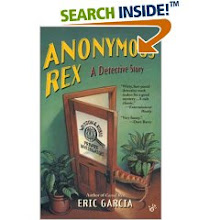
Reading Eric Garcia for Christmas
Click Here to Purchase Anonymous Rex
Vinegar Hill

Reading A. Manette Ansay for Christmas
Click Here to Purchase Vinegar Hill
Nicotine Dreams

Reading Katie Cunningham for Christmas
Click Here to Purchase Nicotine Dreams
Junot Diaz
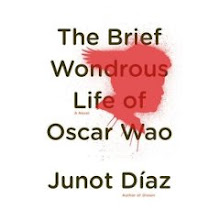
Pulitzer Prize Winner!!!
Click Here to Purchase The Brief Wondrous Life of Oscar Wao
Edwige Danticat

New Year's Reading
Click Here to Purchase Brother I"m Dying
Greed
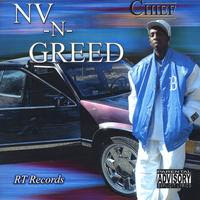
This Brother Is Scary Good
Sweet Music
One More Chance
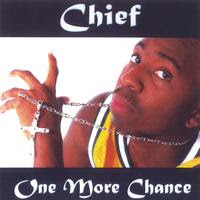
The genius Is At It Again/The Rapper CHIEF aka Sherwin Allen
Sandrine's Letter
Check out Sandrine's Letter To Tomorrow. You will like it, I insist.
Sandrine's Link
Cool Sites
- Akashic Books
- All or Nothing (My Other Blog)
- Asili The Journal
- Best Gamblling News Site
- Black Star Review
- Book Remarks
- Booktour.com
- Carolina Wren Press
- Click Here for Some Pretty Good Writing Contests
- Dedra Johnson
- Enrico Theoc
- Felicia Luna Lemus
- Florida Book Review
- Foreword Magazine
- Gambling Is Linked to Suicide
- Gambling Is Not Linked to Suicide
- Gaming Law Review
- Gene Durnell's The Thinking Journalist
- Gene Durnell's The Thinking Journalist
- Geoffrey Philp's Blog
- Get Chief's CDs on CD Baby
- Getting Past Gambling
- Gonzalo Barr's Blog
- Good Reads
- Hallema's Homepage
- Help With Gambling Addiction
- Jeremy Shipp's Website
- John Dufresne's Blog
- Leonard Nash Homepage
- Links to Seminole Casinos in Florida
- Martha Frankel's Homepage
- Michael A. Gonzales
- Miss Snark/ An Agent Gives Great Publishing Advice
- More Addiction Help
- No Gambling.com
- Pat MacEnulty
- ScrewIowa.com
- St. Louis Rams, The Greatest Show on Turf
- Suicide reference library
- T Cooper
- University of Florida
- Vicki Hendricks
- Walter Jacobs's Blog
- Writers Who Read
- Writing with Celia

All or Nothing

Editorial Reviews of All or Nothing
New York Times--". . . a cartographer of autodegradation . . . Like Dostoyevsky, Allen colorfully evokes the gambling milieu — the chained (mis)fortunes of the players, their vanities and grotesqueries, their quasi-philosophical ruminations on chance. Like Burroughs, he is a dispassionate chronicler of the addict’s daily ritual, neither glorifying nor vilifying the matter at hand."
Florida Book Review--". . . Allen examines the flaming abyss compulsive gambling burns in its victims’ guts, self-esteem and bank accounts, the desperate, myopic immediacy it incites, the self-destructive need it feeds on, the families and relationships it destroys. For with gamblers, it really is all or nothing. Usually nothing. Take it from a reviewer who’s been there. Allen is right on the money here."
Foreword Magazine--"Not shame, not assault, not even murder is enough reason to stop. Allen’s second novel, All or Nothing, is funny, relentless, haunting, and highly readable. P’s inner dialogues illuminate the grubby tragedy of addiction, and his actions speak for the train wreck that is gambling."
Library Journal--"Told without preaching or moralizing, the facts of P's life express volumes on the destructive power of gambling. This is strongly recommended and deserves a wide audience; an excellent choice for book discussion groups."—Lisa Rohrbaugh, East Palestine Memorial P.L., OH
LEXIS-NEXIS--"By day, P drives a school bus in Miami. But his vocation? He's a gambler who craves every opportunity to steal a few hours to play the numbers, the lottery, at the Indian casinos. Allen has a narrative voice as compelling as feeding the slots is to P." Betsy Willeford is a Miami-based freelance book reviewer. November 4, 2007
Publisher’s Weekly--"Allen’s dark and insightful novel depicts narrator P’s sobering descent into his gambling addiction . . . The well-written novel takes the reader on a chaotic ride as P chases, finds and loses fast, easy money. Allen (Churchboys and Other Sinners) reveals how addiction annihilates its victims and shows that winning isn’t always so different from losing."
Kirkus Review--"We gamble to gamble. We play to play. We don't play to win." Right there, P, desperado narrator of this crash-'n'-burn novella, sums up the madness. A black man in Miami, P has graduated from youthful nonchalance (a '79 Buick Electra 225) to married-with-a-kid pseudo-stability, driving a school bus in the shadow of the Biltmore. He lives large enough to afford two wide-screen TVs, but the wife wants more. Or so he rationalizes, as he hits the open-all-night Indian casinos, "controlling" his jones with a daily ATM maximum of $1,000. Low enough to rob the family piggy bank for slot-machine fodder, he sinks yet further, praying that his allergic 11-year-old eat forbidden strawberries—which will send him into a coma, from which he'll emerge with the winning formula for Cash 3 (the kid's supposedly psychic when he's sick). All street smarts and inside skinny, the book gives readers a contact high that zooms to full rush when P scores $160,000 on one lucky machine ("God is the God of Ping-ping," he exults, as the coins flood out). The loot's enough to make the small-timer turn pro, as he heads, flush, to Vegas to cash in. But in Sin City, karmic payback awaits. Swanky hookers, underworld "professors" deeply schooled in sure-fire systems to beat the house, manic trips to the CashMyCheck store for funds to fuel the ferocious need—Allen's brilliant at conveying the hothouse atmosphere of hell-bent gaming. Fun time in the Inferno.
Florida Book Review--". . . Allen examines the flaming abyss compulsive gambling burns in its victims’ guts, self-esteem and bank accounts, the desperate, myopic immediacy it incites, the self-destructive need it feeds on, the families and relationships it destroys. For with gamblers, it really is all or nothing. Usually nothing. Take it from a reviewer who’s been there. Allen is right on the money here."
Foreword Magazine--"Not shame, not assault, not even murder is enough reason to stop. Allen’s second novel, All or Nothing, is funny, relentless, haunting, and highly readable. P’s inner dialogues illuminate the grubby tragedy of addiction, and his actions speak for the train wreck that is gambling."
Library Journal--"Told without preaching or moralizing, the facts of P's life express volumes on the destructive power of gambling. This is strongly recommended and deserves a wide audience; an excellent choice for book discussion groups."—Lisa Rohrbaugh, East Palestine Memorial P.L., OH
LEXIS-NEXIS--"By day, P drives a school bus in Miami. But his vocation? He's a gambler who craves every opportunity to steal a few hours to play the numbers, the lottery, at the Indian casinos. Allen has a narrative voice as compelling as feeding the slots is to P." Betsy Willeford is a Miami-based freelance book reviewer. November 4, 2007
Publisher’s Weekly--"Allen’s dark and insightful novel depicts narrator P’s sobering descent into his gambling addiction . . . The well-written novel takes the reader on a chaotic ride as P chases, finds and loses fast, easy money. Allen (Churchboys and Other Sinners) reveals how addiction annihilates its victims and shows that winning isn’t always so different from losing."
Kirkus Review--"We gamble to gamble. We play to play. We don't play to win." Right there, P, desperado narrator of this crash-'n'-burn novella, sums up the madness. A black man in Miami, P has graduated from youthful nonchalance (a '79 Buick Electra 225) to married-with-a-kid pseudo-stability, driving a school bus in the shadow of the Biltmore. He lives large enough to afford two wide-screen TVs, but the wife wants more. Or so he rationalizes, as he hits the open-all-night Indian casinos, "controlling" his jones with a daily ATM maximum of $1,000. Low enough to rob the family piggy bank for slot-machine fodder, he sinks yet further, praying that his allergic 11-year-old eat forbidden strawberries—which will send him into a coma, from which he'll emerge with the winning formula for Cash 3 (the kid's supposedly psychic when he's sick). All street smarts and inside skinny, the book gives readers a contact high that zooms to full rush when P scores $160,000 on one lucky machine ("God is the God of Ping-ping," he exults, as the coins flood out). The loot's enough to make the small-timer turn pro, as he heads, flush, to Vegas to cash in. But in Sin City, karmic payback awaits. Swanky hookers, underworld "professors" deeply schooled in sure-fire systems to beat the house, manic trips to the CashMyCheck store for funds to fuel the ferocious need—Allen's brilliant at conveying the hothouse atmosphere of hell-bent gaming. Fun time in the Inferno.
At Books and Books
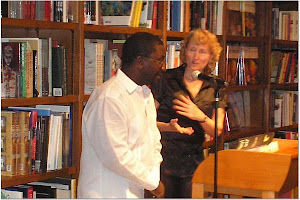
Me And Vicki at Our Reading
Bio
Preston L. Allen is the recipient of a State of Florida Individual Artist Fellowship in Literature and the Sonja H. Stone Prize in Fiction for his short story collection Churchboys and Other Sinners (Carolina Wren Press 2003). His works have appeared in numerous publications including The Seattle Review, The Crab Orchard Review, Asili, Drum Voices, and Gulfstream Magazine; and he has been anthologized in Here We Are: An Anthology of South Florida Writers, Brown Sugar: A Collection of Erotic Black Fiction, Miami Noir, and the forthcoming Las Vegas Noir. His fourth novel, All Or Nothing, chronicles the life of a small-time gambler who finally hits it big. Preston Allen teaches English and Creative Writing in Miami, Florida.
No comments:
Post a Comment